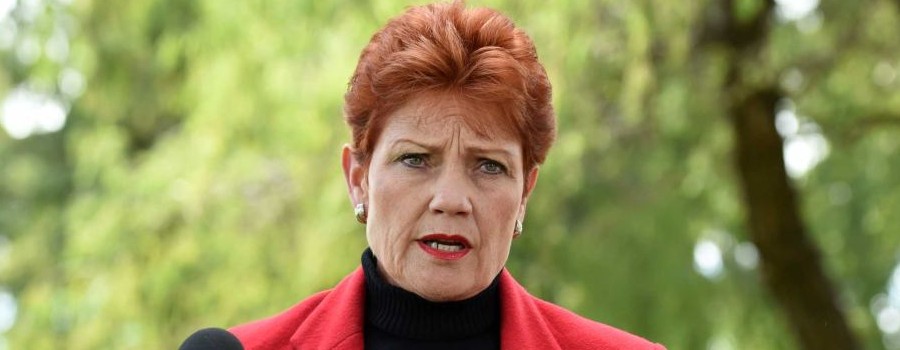Pauline Hanson, leader of the One Nation Party, has declared that there is no definition of the word ‘Aboriginal’.
In an interview on conservative media commentator Andrew Bolt’s The Bolt Report, Senator Hanson explains that current definitions aren’t good enough, in her opinion.
“If you marry an Aboriginal you can be classified (as one), or if the community or the elders accept you into that community you can be defined as an Aboriginal. That’s not good enough because then if you make a comment about it, well what are you? Are you an Aboriginal or non-Aboriginal?” She asks.
.@PaulineHansonOz says there is no definition of aboriginal. Live on #TheBoltReport, @SkyNewsAust https://t.co/bo4zK5cQUu
— The Bolt Report (@theboltreport) November 28, 2016
These comments were made during a discussion of the Racial Discrimination Act, which contains a section that relates to hate speech.
“I think that people need to toughen up a bit, we’ve all become so precious. We’ve stopped freedom of speech,” the senator declared.
The comments made by Pauline Hanson have led to the Twitter trending topic, #DefineAboriginal. It is in the thread that the Indigenous community are commenting on what the senator said on the show.
Refusing to read, or being unable to comprehend, a definition does not mean that one does not exist… #defineAboriginal pic.twitter.com/SvyqZ6D5lv
— Pearson In The Wind (@LukeLPearson) November 29, 2016
Being told by a white boy from Tassie that that his people pushed my people off a cliff #DefineAboriginal
— Miranda Tapsell (@missmirandatap) November 29, 2016
The discussion of 18C and alterations to the law has been prevalent in the news over the last few months, with some politicians believing that the definition of ‘hate speech’ is too broad. Some even believe that they feel it prevents them talking about certain issues, but as Luke Pearson points out, that isn’t the case.
“Among the more egregious of these has been the idea that 18C prevents people from talking about issues of Aboriginal culture and identity – whether it be about ‘fair-skinned’ Aboriginal people, Indigenous funding, or domestic violence. There is nothing about 18C which prevents anyone sharing any opinion about any of these topics, and the exemptions offered by 18D further ensures that these topics are open for discussion,” he writes for SBS.
Section 18C of the Racial Discrimination Act does not stop anyone from talking about issues – as though as they don’t insult, offend, humiliate or intimidate anybody. And the definition of an Aboriginal person is as clear as day, as pointed out by Luke Pearson’s tweet.
So, Pauline Hanson, please explain?

